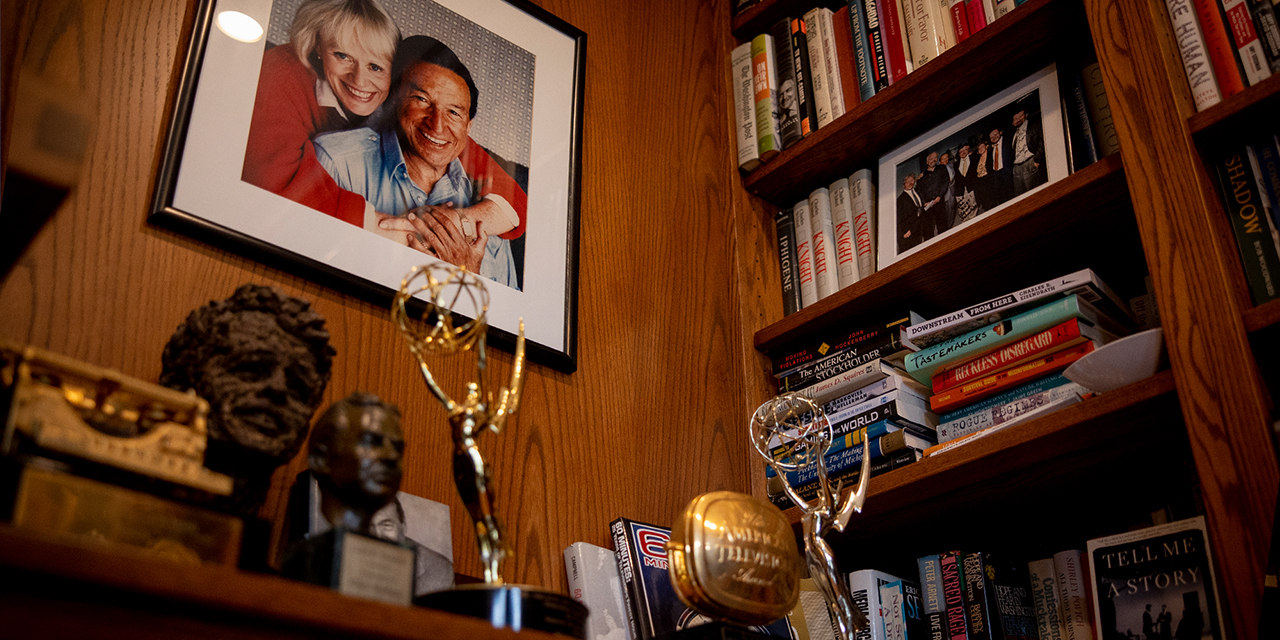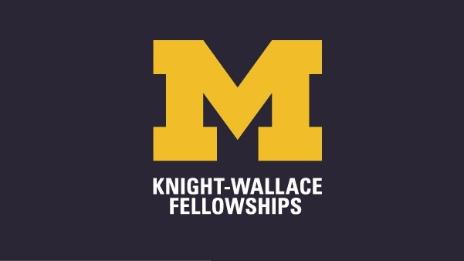By Eric Gallippo | Photos by Marc-Grégor Campredon
Sitting in a small library filled with books by alumni and seminar guests, Wallace House Center for Journalists Director Lynette Clemetson talks passionately about journalism and the gift of time.
“Journalists are usually a bit idealistic and have some sort of desire to save the world, make things better, hold institutions and people accountable,” Clemetson said. “But the act of doing journalism can kind of beat that out. Especially now, where the digital cycle is 24 hours, there’s very little time for people to refresh.”
That’s where the Knight-Wallace Fellowship comes in. Established in 1973 with funding from the National Endowment for the Humanities (NEH), the original NEH Journalism Fellowship was launched to give journalists a chance to broaden and deepen their knowledge in a university setting. Over the years, fellows came to think of it as a sabbatical for working journalists to recharge, explore, and think about the next step in their careers, especially during the industry disruptions of the 2000s. The program has brought some of the brightest and best news reporters from around the world to Ann Arbor to embed themselves on campus and leave with a renewed—or brand new—sense of purpose.
Dateline Ann Arbor
In 1992, Mike Wallace (AB ’39, HLLD ’87), and his wife, Mary, bought this historic Arts and Crafts home east of downtown Ann Arbor and central campus, and donated it to the fellowship. Wallace House has been the fellowship’s home and primary meeting space for seminars and socializing ever since. Ten years later, after additional gifts from Mike Wallace and the Knight Foundation, the program, then called the Michigan Journalism Fellows, became the Knight-Wallace Fellowship. Thanks to ongoing donor support, the program will celebrate its 50th anniversary this fall.
Just outside the library, several overstuffed chairs, many matching with the same nearly-scrapped floral upholstery recovered 30 years ago, are arranged around a coffee table and presentation space for guest speakers. Group photos of each cohort since 1973 line the wall. There’s also a dining room, which gets cozy fast seating 20 fellows and guests, and the kitchen where “amazing mashups” happen, from Argentine-Italian dinners to small talk between an NPR reporter and New York Times bestselling author Malcolm Gladwell. (Clemetson stresses that “small ‘f’ fellowship” is at the heart of the program).
During their academic year on campus, fellows audit courses, conduct research, travel abroad, and attend seminars held every Tuesday and Thursday at Wallace House. Fellows apply with a project to work on for the year that is outside the scope of their day jobs, which they are also required to leave behind for the duration of their fellowship. It’s one of the program’s few rules, but it’s been an integral part of it since the beginning.
“In some ways, it’s counterintuitive to say, ‘Well, you should actually support a place that’s asking journalists to stop working,’ but I know that this program keeps people in journalism and it makes them better journalists,” Clemetson said.
Staying hungry
She should know: Clemetson was a member of the 2009–2010 fellowship cohort before leaving her position as senior director of strategy and initiatives at NPR to become the program’s fourth director in 2016. Fellow alumni Rochelle Riley, former Detroit Free Press columnist and current arts and culture director for the City of Detroit, and Scott Tong, co-host of NPR’s “Here and Now,” echo her sentiments.
Riley was a “crusading columnist in the old style” (her first piece for the Free Press in 2000 called for shutting down the Detroit Public Schools) when she came to the fellowship in 2007–2008. She spent her year on campus studying film and how to build online communities, writing a screenplay, and thinking about her future. She did all this while a local story about embattled Detroit Mayor Kwame Kilpatrick made national headlines, and she couldn’t write a word about it (no matter how much her editor pleaded). The day she completed the fellowship, Riley’s first column on the “Kilpatrick saga” was published. That column, and subsequent ones, were included in coverage that eventually won the paper a Pulitzer Prize for local reporting.
“Because I’d been away from it for nine months, it was almost like my fingers and my brain were hungry for it. I was ready to write something every day,” Riley said. “I literally came out of that fellowship and I didn’t leave the newsroom until 2019. But the amount and caliber of work I did between the end of that fellowship and 2019 stunned even me.”
At a crossroads
After working overseas in Shanghai as a correspondent for NPR’s “Marketplace,” Tong returned to the U.S. at a crossroads about what to do next. He came to the Knight-Wallace Fellowship in 2013 with a book proposal for an “economic memoir” connecting his own family history to a larger story about China and the West’s distrust of it.
Working with China scholars and writing faculty, along with the encouragement of his cohort, Tong left the fellowship ready to finish his book while also returning to work at NPR. “A Village with My Name” was published by University of Chicago Press in 2017.
“It’s a journalism project I’d never attempted before, where you push a little bit and then it has to marinate and process, and then you push a little more,” Tong said.
Now more than ever
Reporting from places where a free and open news media doesn’t exist underscored its importance to Tong. Now, in an America where “facts are casual and purposeful,” he said the question becomes, “How do we preserve critical thinking, open inquiry, and an agreed set of facts to have a public conversation?”
“It makes journalists more important than ever, and at the same time, the economics of journalism are more challenging than ever,” he said.
To Riley, it’s not only a challenging time, but a dangerous one.
“This type of support is needed more than ever,” she said. “We are now living in an era where people have decided it’s OK to hate journalists, to attack journalists, to not care about journalism or truth. It is a very threat to our democracy, such as it is.”
A full view
LaVerne Prager (MSW ’60) began supporting the Knight-Wallace fellowship in honor of her late husband, Karsten Prager (AB ’58, AM ’60) who first came to the U.S. as a German exchange student and eventually became international editor for Time magazine in the 1990s.
Of particular interest to Prager and her husband was making Americans more aware of what was happening outside of the country. When Karsten died, LaVerne established the Karsten-Prager Fellowship in International Reporting. To Prager, keeping up with world events and learning about different cultures were central to a brand of news reporting that is becoming scarcer.
“No matter how you felt personally about things, you didn’t let the politics of a situation interfere,” Prager said. “You tried to give a full view of both sides of whatever issue you were covering.”
Rebuilding the news
Thinking about the program’s future as it turns 50, Clemetson sees two areas as a natural fit for it to expand its focus: protecting press freedom around the globe and rebuilding local journalism in the Midwest. The fellowship recently announced its 2023–2024 cohort, which includes members from Ukraine, Hong Kong, Haiti, Nigeria, and Afghanistan. Clemetson notes that for some reporters, coming to Ann Arbor is about more than studying: “It can be lifesaving for them.” And while they’re here, they can share a perspective with faculty and fellow students that otherwise wouldn’t be possible.
As part of the university, Clemetson sees the fellowship as being poised to help bring back the kind of regionally focused news reporting that U.S. democracy demands.
“Local news, and especially local news in the Midwest, has been decimated, and the social cost of that is great and the situation that it leaves us in is dire,” Clemetson said. “We can actually help give journalists who want to rebuild and launch new news organizations the skills they need to develop and sustain them.”

